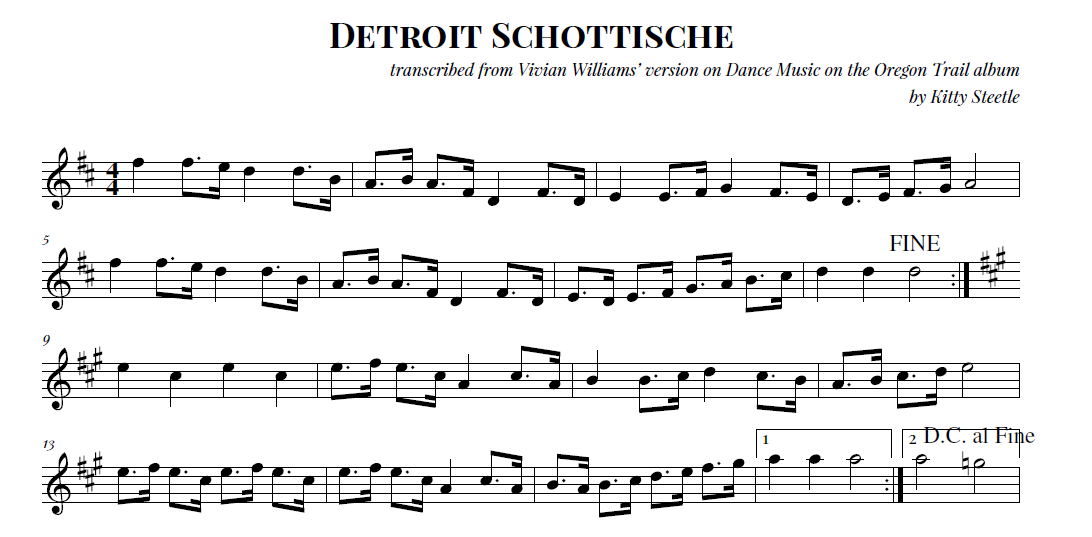Detroit Schottische is attributed to Adam Couse, a dancing master who also owned a music store in Detroit, Michigan in the mid-19th century.12 Adam Couse’s Detroit Schottisch3 was published in 1854 as a piano tune with accompaniment and the facsimile can be found on the Library of Congress website.4
Elias Howe includes the tune in his Musician’s Omnibus No 1, under the section, May Flower Schottische Quadrilles, No 3 Detroit Schottische (1863, p 56).5 Here Howe does not give a composer; although this is not wholly irregular for the time period, Howe does use the phrase ‘by permission’ for other tunes signifying that they have known composers (see Musician’s Omnibus No 1, Dixie’s Land and Mocking Bird both on page 8) leading one to think Howe believed the tune was traditional.6
The Detroit Schottische is very similar to Flop-Eared Mule and Lop-Eared Mule with both latter tunes being more popular in the American southeast. There is a strong likelihood that all three share a common ancestor and have no clear single source.7
–Kitty Steetle
Last modified: February 3, 2024
By downloading this music, you agree to the Terms & Conditions.
- https://tunearch.org/wiki/Annotation:Detroit_Schottische[
]
- Notably, Couse became friends with composer Stephen Foster who dedicated the ballad, The Voice of By Gone Days, to Couse.[
]
- No ‘e’.[
]
- https://www.loc.gov/resource/music.mussm2-sm1854-230240/[
]
- You can download the entire Omnibus at the IMSLP link below. (Snip is taken from the online facsimile.) [
]
- https://imslp.org/wiki/Musician’s_Omnibus_(Howe%2C_Elias) [
]
- Sorry, Adam Couse.[
]

